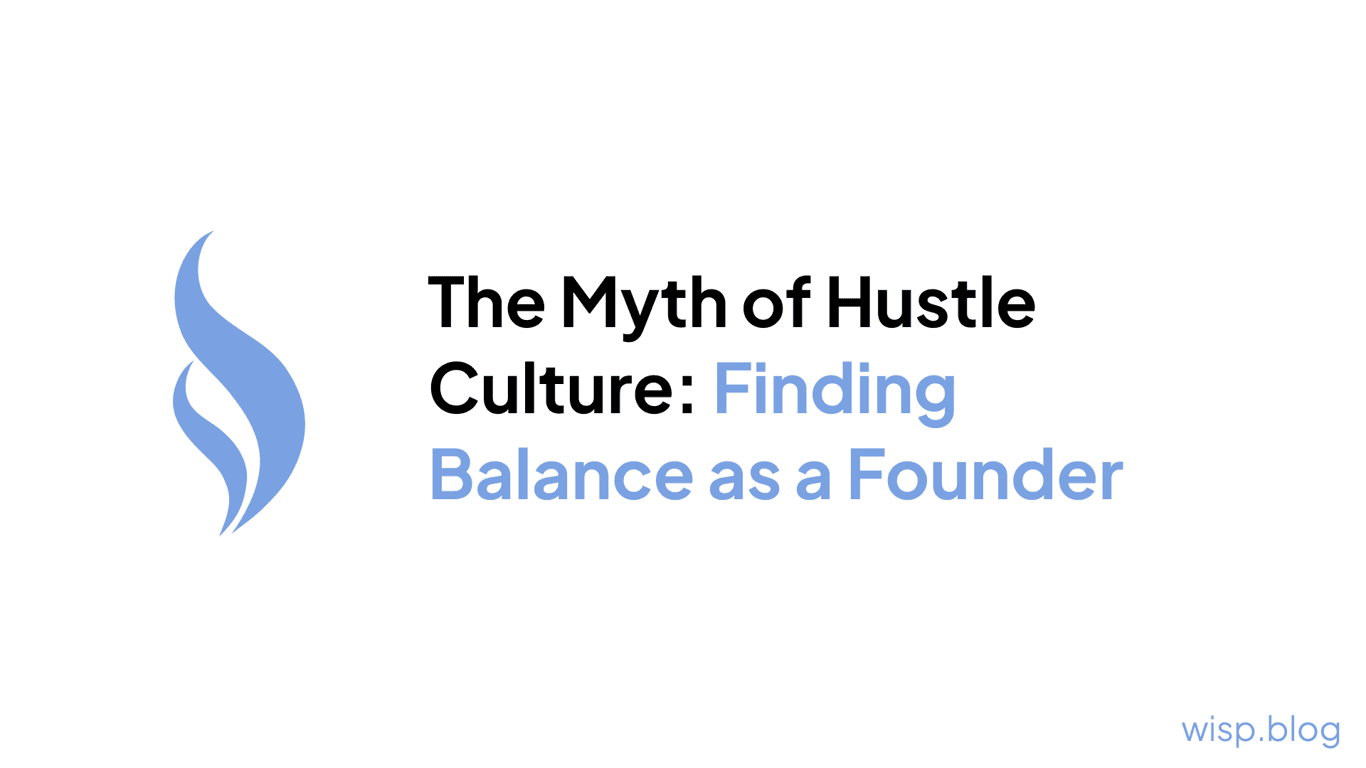
You're sitting at your desk during lunch break, excitedly working on your startup idea. As you dive deeper into the project, a familiar question keeps nagging at you: "Should I quit my job and go all-in, or keep building this on the side?" Your heart races at the thought of taking the leap, but your practical side reminds you of your monthly mortgage payments.
This internal struggle is one that countless entrepreneurs face. According to discussions on Reddit's r/Entrepreneur, many founders find themselves torn between the security of a steady paycheck and the allure of full-time entrepreneurship. One user shares, "when I fully committed to it, I wouldn't see friends or family for 5 months" – a stark reminder of the sacrifices involved.
The Reality of Side Projects
Building a startup while maintaining a full-time job isn't just about finding extra hours in the day. As one entrepreneur notes, "The most difficult part is not to find time, but the ability to switch attention and focus to a totally different problem once done with a stressful day at work." This mental context-switching can be exhausting and often leads to:
Fragmented focus and reduced productivity
Limited time for family and personal life
Slower progress compared to full-time founders
Difficulty in attending important business meetings during work hours
Physical and mental exhaustion
However, the side-hustle approach offers significant advantages that shouldn't be overlooked. It provides:
Financial security while validating your business idea
Reduced pressure to generate immediate revenue
Opportunity to learn and iterate without risking your livelihood
Access to stable income for funding your startup
A safety net if things don't work out as planned
The Full-Time Commitment: A Double-Edged Sword
On the flip side, going all-in on your startup can accelerate your progress dramatically. When you're fully committed, you have:
Uninterrupted focus on your business
Flexibility to attend meetings and networking events
Mental space to think strategically
Ability to respond quickly to opportunities and challenges
Complete alignment of your personal and professional goals
However, this path comes with its own set of challenges. According to Harvard Business Review, the emotional and financial vulnerability of full-time entrepreneurship can be overwhelming, especially during uncertain economic conditions. You're essentially betting your financial security on your ability to execute your vision.
The Resource Management Dilemma
One of the most fascinating aspects of entrepreneurship is how different founders approach resource management. There are typically two schools of thought:
The Bootstrap Approach
Some entrepreneurs look at their current resources – skills, savings, network, and available time – and build what they can with what they have. This approach often results in:
More sustainable growth
Lower initial risk
Greater creative problem-solving
Stronger foundation for scaling
Better cash flow management
The Vision-First Approach
Others start with a grand vision and work backward to acquire the necessary resources. While this can lead to bigger opportunities, it often requires:
Significant fundraising efforts
More initial risk
Longer runway requirements
Greater pressure to deliver results
Need for external validation
Making the Decision: A Framework
To help you decide between part-time and full-time entrepreneurship, consider these key factors:
1. Financial Runway
How many months of living expenses do you have saved?
Do you have dependents or significant financial obligations?
Can your business generate revenue quickly?
2. Market Validation
Have you validated your business idea?
Do you have paying customers or strong interest?
Is there urgency in your market timing?
3. Personal Circumstances
How supportive is your family of your entrepreneurial journey?
Are you in a life stage where you can take bigger risks?
Do you have the energy and health to handle the stress?
4. Business Requirements
Does your business need full-time attention to succeed?
Can you effectively serve customers part-time?
Are there competitors moving quickly in your space?
The Power of Focus
Regardless of whether you choose the part-time or full-time path, one thing remains crucial: the power of sustained focus. As highlighted in discussions on r/Entrepreneur, "the problem with 99% of entrepreneurs is they are fixated on getting rich or having large windfalls quickly - then they never get there or can't sustain it."
Success in entrepreneurship often comes from:
Consistent Effort: Whether it's two hours a day or eight, regular progress compounds over time
Single Focus: Avoid spreading yourself too thin across multiple projects
Long-term Perspective: Build for sustainability rather than quick wins
Quality Over Speed: Do things right rather than just doing them fast
Risk Management Strategies
Whether you choose part-time or full-time entrepreneurship, effective risk management is crucial. Based on insights from startup founders, here are key strategies to consider:
For Part-time Entrepreneurs:
Set clear boundaries between your job and startup
Create systems to maximize your limited time
Build automated processes where possible
Network during lunch breaks and after hours
Use vacation days strategically for important business matters
For Full-time Entrepreneurs:
Maintain an emergency fund covering 6-12 months of expenses
Develop multiple revenue streams within your business
Create contingency plans for various scenarios
Build strong relationships with potential investors
Keep your skills updated for potential fallback options
Making Your Decision
The choice between part-time and full-time entrepreneurship isn't just about risk tolerance – it's about finding the right approach for your specific situation and goals. As one successful entrepreneur shared on Reddit, "I worked on it in the mornings, at lunch time, at night after dinner and on weekends. Took me 3 years before I could leave the day job."
Remember:
There's no universal "right" answer
Your choice isn't permanent
You can transition from one approach to the other
Success is possible through either path
Final Thoughts
Whether you choose to build your startup on the side or dive in full-time, the key is to make a conscious, well-thought-out decision based on your circumstances, resources, and goals. Don't let the pressure of "moving fast" or "hustling harder" push you into a decision that doesn't align with your personal situation.
As you make your decision, remember that some of the most successful companies started as side projects, while others required full-time dedication from day one. The path you choose is less important than your commitment to seeing it through, your ability to manage resources effectively, and your willingness to stay focused on long-term success rather than quick wins.
Whatever path you choose, make sure it's sustainable for you and aligned with both your business goals and personal well-being. After all, the best business decision is one that you can stick with for the long haul.


